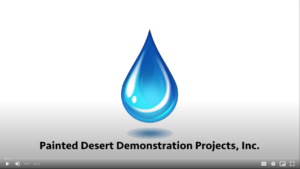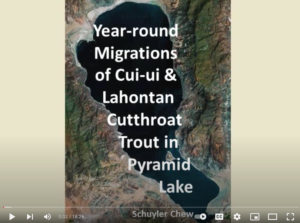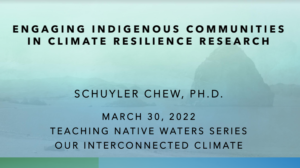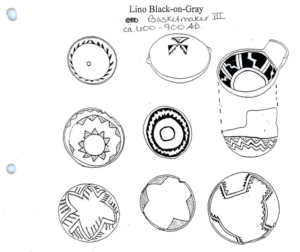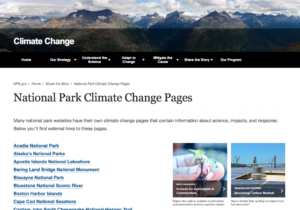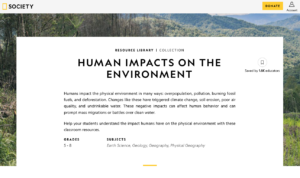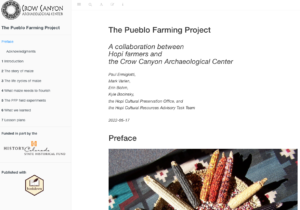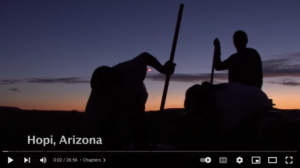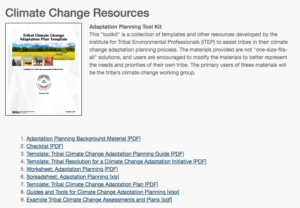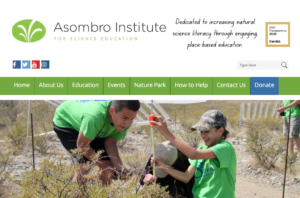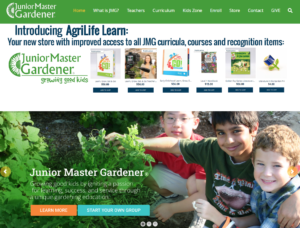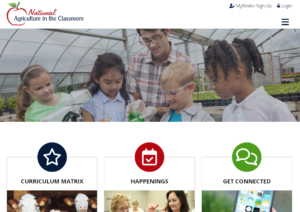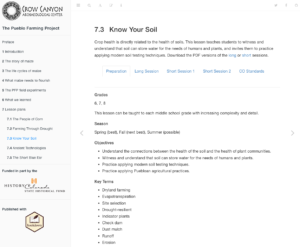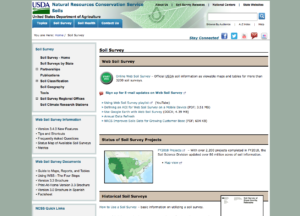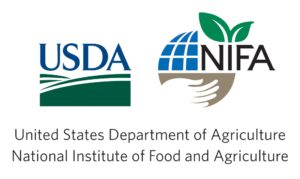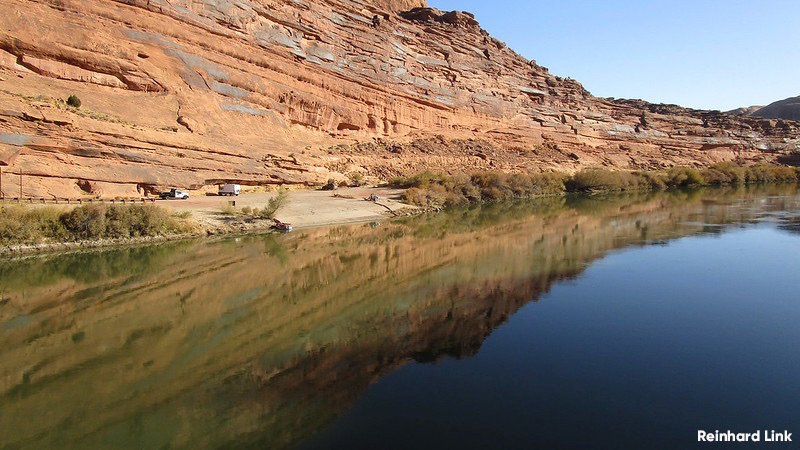
Teaching Native Waters: Professional Development Community
About this virtual professional development series:
Teaching Native Waters is a community of educators and scientists working in service of Indigenous youth. Through sharing skills, knowledge, and professional development, TNW seeks to expand horizons for the next generation in the areas of climate, soil, food, and water.
Middle and high school science, technology, engineering, and math educators: Join us for place-based STEM education professional development to build community with other teachers serving Native students.
Earn up to $250 for each module for materials and supplies for your classroom. Support each other through challenges and build resilience with other educators serving Native students.
Join Teaching Native Waters for the first time, or deepen your knowledge from last year.
Dates:
- Our Interconnected Climate: March 21 – April 22, 2022.
Join the module on Our Interconnected Climate to discover how climate interacts with water, food production, and wildland fire. Share how climate change is affecting your region, and the solutions we have to mitigate it. - Deepening Our Knowledge of Soils: May 9 – June 10, 2022.
Teaching Native Waters is a community of educators and scientists working in service of Indigenous youth. Through sharing skills, knowledge, and professional development, TNW seeks to expand horizons for the next generation in the areas of climate, soil, food, and water.
In the five-week module on Deepening Our Knowledge of Soils, we will feature five Indigenous experts in topics related to soil conservation and restoration for farming, forests, and rangelands. Join us for live presentations and interactive discussions with Tribal Extension agents and other experts in agriculture, forestry, drought, and more.
Teaching Native Waters is a community of educators and scientists working in service of Indigenous youth. Through sharing skills, knowledge, and professional development, TNW seeks to expand horizons for the next generation in the areas of climate, soil, food, and water.
In the five-week module on Our Interconnected Climate, we will feature five Indigenous experts in topics related to the connections that climate has with water, ecosystems, energy, and more. Join us for live presentations and interactive discussions with experts in agriculture, forestry, drought, and more.
Featured speakers:
| Date | Name | Topic |
| 3/23/22 | Mark Sorensen | Innovative ways to provide clean water for indigenous communities. |
| 3/30/22 | Schuyler Chew | Engaging Indigenous Communities in Climate Resilience Research |
| 4/6/22 | Nikki Cooley | ITEP climate programs for the classroom |
| 4/13/22 | Jason Nez | Fire and Cultural Resources |
| 4/20/22 | Lino Footracer | Middle school climate change lesson |
About the Speakers:
- Mark Sorensen
Mark Sorensen has been deeply involved in establishing and leading community-based schools serving indigenous populations for more than 45 years. He has been a principal, Executive Director, and Superintendent of Native-led schools in various Navajo communities in Arizona and has helped establish community-focused schools in several other tribal nations. Dr. Sorensen is currently co-founder and CEO of the STAR(Service To All Relations) School, which is an off-grid, solar-powered charter school located near the boundary of the Navajo Nation.
- Schuyler Chew
Schuyler Chew is Mohawk Wolf clan from Six Nations Grand River and grew up on the Tuscarora Nation. As an environmental scientist, he is committed to partnering with Indigenous communities on climate adaptation research. His dissertation research on the Pyramid Lake Paiute Tribe’s resilience to climate change was funded in part by the Native Waters on Arid Lands project.
- Nikki Cooley
Nikki is the co-manager for ITEP’s Tribal Climate Change Program. She is of the Diné Nation by way of Shonto and Blue Gap, AZ, and is of the Towering House Clan, born for the Reed People Clan, maternal grandfathers are of the Water that Flows Together Clan, and paternal grandfathers are of the Manygoats Clan. Nikki received her Bachelors and Masters of Forestry from Northern Arizona University (NAU) with a few years of post-graduate study at Michigan State University. For her undergraduate and Masters studies, she has worked extensively with the Cherokee Tribe of North Carolina, and has worked with various tribes including the Kaibab Paiute tribe. Prior to ITEP, Nikki has worked with the Merriam Powell Center for Environmental Research on a Climate Change Education Program, and at NAU Talent Search working with underrepresented, low-income, potential first-generation college students at 10 middle and high schools in Northern Arizona.In addition, as a river guide and cultural interpreter working on the Colorado River-Grand Canyon and San Juan River, Nikki is the co-founder of the Native American River Guide Training Program and Fifth World Discoveries, was the first Native American President and Vice-President of the Grand Canyon River Guides Association (GCRG), and is a former associate director of the Native Voices Program. She is very passionate about advocating for and education about the protection and preservation of the environment and its resources. Nikki thoroughly enjoys gardening, her Navajo language and culture, and spending time with her large extended family in the southwest and Iowa.
Nikki can be reached by e-mail at Nikki.Cooley@nau.edu.
- Jason Nez
Jason Nez is a Dine Archaeologist from Coalmine Mesa, Arizona. He is currently an Archaeologist (Fire) at Grand Canyon National Park, where he works with both the Science and Resource Management and Fire and Aviation Division to assist in the preservation and protection of Cultural and Natural Resources. Additionally, he works to train other fire personnel and science and resource management staff in using their skills on firelines to protect resources. In the past 20 years, he has also been an NPS Interpretive Ranger and worked for various Federal Agencies and Cultural Resource Management companies including the former Navajo National Archaeology Department. In his off time, he is working the family ranch with his horse, Whiskey.
- Lino Footracer
Coming soon.
Click the registration button below to join!
Teaching Native Waters is a community of educators and scientists working in service of Indigenous youth. Through sharing skills, knowledge, and professional development, TNW seeks to expand horizons for the next generation in the areas of climate, soil, food, and water.
In the five-week module on Deepening Our Knowledge of Soils, we will feature five Indigenous experts in topics related to the Pueblo Farming Project and its key content areas. Join us for live presentations and interactive discussions with experts in agriculture, forestry, drought, and more.
Join us starting Wednesday May 11, 2022 from 3pm/4pm (PST/MST)*
*This module will differ from the previous one in that it will run for 90 minutes instead of the previous 60 minutes. The last 30 minutes of every session will be bonus time for educators to discuss and complete their KWL charts together. It is not required to stay for the last 30 minutes and educators are still highly encouraged to join as long as they are able to make the first hour of the sessions.
Featured speakers:
| Date | Name | Topic |
| 5/11/22 | Mark Varien & Ronald Wadsworth | The Pueblo Farming Project: A Hopi-Crow Canyon Collaboration |
| 5/18/22 | Vicki Hebb | Ranching on the Rez |
| 5/25/22 | Nikki Cooley | Coming soon |
| 6/1/22 | Susan Sekaqueptewa | Teaching Agricultural Education Inclusive of Science and Traditional Knowledge |
| 6/8/22 | Yuko Wenzel | Soil decomposition as a place-based learning opportunity |
About the Speakers:
- Mark Varien
Mark Varien is the Executive Vice President of the Research Institute and the Ricky R. Lightfoot Chair for Research at the Crow Canyon Archaeological Center. Mark joined the staff at Crow Canyon in 1987. Prior to his current position he served Crow Canyon as a research archaeologist (1987–1997), Director of Research (1997–2007), Vice President of Programs (2007–2010), and Research and Education Chair (2010–2014). His first book, Sedentism and Mobility in a Social Landscape, was published in 1999 by the University of Arizona Press and was based on his PhD dissertation, which was awarded the Society of American Archaeology’s 1998 Dissertation Award. Since then, he has published numerous other books as edited volumes, including Seeking the Center Place: Archaeology and Ancient Communities in the Mesa Verde Region (2002, University of Utah Press), The Social Construction of Communities: Agency, Structure, and Identity in the Prehispanic Southwest (2008, AltaMira Press), Leaving Mesa Verde: Peril and Change in the Thirteenth Century Southwest (2010), and Emergence and Collapse of Early Villages: Models of Central Mesa Verde Region Archaeology (2012, University of California Press). He has also published articles many scientific, peer-reviewed journals, including American Antiquity, Kiva, Ancient Mesoamerica, and World Archaeology, and he has published works for the interested public, including a contribution to The Mesa Verde World and articles in Scientific American and American Scientist. His research has been featured in articles in the popular journals American Archaeology and Nature. Mark’s research interests include household and community organization, migration studies, the formation of cultural landscapes, human impact on the environment, the human response to climate change, archaeology and public education, and American Indian involvement in archaeology.
- Ronald Wadsworth
Ronald Wadsworth is a member of the Hopi Tribe of Northern Arizona. Ron was born and raised on the Hopi Nation. He attended elementary through junior high school on the Hopi Nation and then was sent to Sherman Indian High School in Riverside, California in 1972. Ron returned to the Hopi Nation and was initiated into the Wuwuchim (Manhood) Ceremony and Soyal (Winter Solstice) Ceremony in 1977. In 1989, the High Hopi Chiefs sanctioned Ron to serve them as Spokesman; he continues to serve Hopi leadership and our Hopi Traditional Self-Government in that capacity to this day. Ron has been practicing traditional Hopi dry farming methods for his entire life; since being taught at a young age, the traditional way is the only way he knows how to plant and raise Hopi seeds. Ron is a farmer and cultural expert for the Pueblo Farming Project regarding Hopi dry farming techniques and traditional knowledge. Ron also currently serves on the Cultural Resources Advisory Task Team of the Tribal Historic Preservation Office of the Hopi Tribe, and Hopivewat-Board of Trustees for the Hopi Museum.
- Vicki Hebb
Vicki Hebb is a member of the Cheyenne River Sioux Tribe in South Dakota where her family ranches raising cow/calf pairs and bucking horses. Vicki is on Faculty at the University of Nevada Reno working with Tribal Extension. She has dedicated the last 20+ years to assisting and educating Tribal farmers and ranchers. Vicki serves as a mentor for the Native American College Fund Keepseagle scholars and is also currently on two Community Advisory Boards for the Great Plains Tribal Chairman’s Health Board.
- Nikki Cooley
Nikki is the co-manager for ITEP’s Tribal Climate Change Program. She is of the Diné Nation by way of Shonto and Blue Gap, AZ, and is of the Towering House Clan, born for the Reed People Clan, maternal grandfathers are of the Water that Flows Together Clan, and paternal grandfathers are of the Manygoats Clan. Nikki received her Bachelors and Masters of Forestry from Northern Arizona University (NAU) with a few years of post-graduate study at Michigan State University. For her undergraduate and Masters studies, she has worked extensively with the Cherokee Tribe of North Carolina, and has worked with various tribes including the Kaibab Paiute tribe. Prior to ITEP, Nikki has worked with the Merriam Powell Center for Environmental Research on a Climate Change Education Program, and at NAU Talent Search working with underrepresented, low-income, potential first generation college students at 10 middle and high schools in Northern Arizona. In addition, as a river guide and cultural interpreter working on the Colorado River-Grand Canyon and San Juan River, Nikki is the co-founder of the Native American River Guide Training Program and Fifth World Discoveries, was the first Native American President and Vice-President of the Grand Canyon River Guides Association (GCRG), and is a former associate director of the Native Voices Program. She is very passionate about advocating for and education about the protection and preservation of the environment and its resources. Nikki thoroughly enjoys gardening, her Navajo language and culture, and spending time with her large extended family in the southwest and Iowa.Nikki can be reached by e-mail at Nikki.Cooley@nau.edu.
- Susan Sekaquaptewa
Susan Sekaquaptewa serves as the Assistant Agent for the University of Arizona’s Federally Recognized Tribal Extension Program. Susan serves the Hopi Tribe by offering agricultural education, 4-H youth programs and Personal Finance education as part of the Family Health and Consumer Science programming. She also manages the Tribal Extension demonstration gardens and hoop houses and teaches high-elevation growing and food preservation classes. Susan is a certified organic gardener, a seed-saver and food preserver. She cattle ranches with her husband and son. Susan is a member of the Hopi Tribe of the butterfly clan.
- Yuko Wenzel
Coming Soon
Click the registration button below to join!
Missed this module? Below are the resources so that you can still get the most out of Teaching Native Waters: Our Interconnected Climate.
Before you begin, it is recommended that you save a copy of the KWL (Know, Wonder, Learn) Chart. This is to help you take notes and organize your thoughts as you move through each week’s material. Further instructions on how to utilize the KWL chart can be found within the document.
Week 1 with Mark Sorensen
Educational Resource:
Painted Desert Demonstration Projects Short Documentary: The Water Box
Breakout Room Discussions:
- What are some health or environmental issues in your community that you feel are affecting the lives of students and their families?
- Small ways that we can tackle big issues: Children’s service to elders. Ways that children and elders connect in your community? Is there an opportunity to create educational opportunities through these connections?
- What places or issues in your community are touched by water quality, and what ideas do you have about diving into these with your students?
- What are some community projects that you can point to that will help your students understand water quality issues better?
- What does intergenerational knowledge sharing look like in your community?
Week 2 with Schuyler Chew
Educational Resource:
Year-round Migrations of Cui-ui and Lahontan Cutthroat Trout in Pyramid Lake
Presentation Slides: Engaging Indigenous Communities in Climate Resilience Research
Jamboard Activity:
- Create a Jamboard at jamboard.google.com
- Prompt participants to add a sticky note addressing a way climate change is affecting their local area.
- Next, think of a local plant/animal/natural feature that is being directly impacted by climate change and add a photo of it to the jamboard.
- Finally, consider the question, “What kind of future do you hope for your community?” Add a new photo or draw the answer on the jamboard.
- Jamboard example 1, Jamboard example 2, Jamboard example 3
Points to Consider:
- How do you perceive and understand climate change as it impacts your community and Nation? Consider a particular plant or animal species that is being affected by climate change. What is your vision of a resilient community in the face of climate change? How can your community help realise that vision?
- Can you think of a way for your students to become part of a “by and with” climate change resilience approach rather than a “for and about” approach?
- What environmental changes (e.g. fire, snowpack, drought) have you noticed in your community over the course of your lifetime? What changes have your students observed in their lifetimes?
- Do you have existing research partnerships with external organisations? If so, can you describe them and discuss how they have been helpful to your community and its response to climate change? What are the gaps? If you do not have partnerships, where might there be opportunities for collaboration?
Week 3 Round Robin Discussion
Week 4 with Jason Nez
Educational Resources:
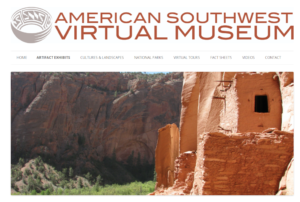
Pottery from the American Southwest Virtual Museum
Points to Consider:
- Jason’s portrayal of time at the beginning of his presentation – with a pie graph showing 3% of time in the contemporary era, and 97% of time that people have created communities in North America helps to recognize the long relationship that Indigenous communities have with the land prior to European colonization and settlement. How do you incorporate and recognize this long relationship in lessons on environment and history with your students?
-
-
- What are some examples of how you’ve incorporated the 97% into your classroom teaching/curriculum?
- How do you address environmental questions/challenges while acknowledging the 97%?
- What is the relationship between time and resource management?
-
- How do you talk to your students about how landscapes tell a story?
- How does nature speak to you within your community?
- Do your students have direct, first-hand experience with wildfire? What has that experience been? What are your students’ views on fire?
- How can wildfire act as both a destructive and a regenerative force?
- What are some experiences that your students have with stewardship of important sites from the past and present?
- One of the themes of Jason’s talk was the ways that we can be good stewards of culturally important places through fire and other natural cycles. What are some experiences that your students have with stewardship of important sites from the past and present?
Week 5 with Lino Footracer
Educational Resources:
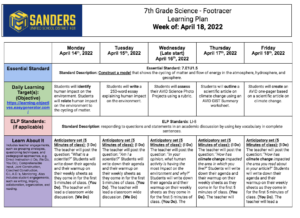
Middle school sample lesson plan template and responding worksheets
National Parks Climate Change Pages
National Geographic: Human Impacts on the Environment Resource Library (if link fails to load results, type “Human Impact” into the NatGeo search bar to repopulate the search)
Points to Consider:
- What is engagement? How do you ensure that your students are engaged in the classroom/during a lesson?
- What are some ways educators can ask students to find evidence of the impact of climate change on their local environment?
- How have Indigenous peoples been scientists?
- In your view, what is the most important work that educators have in preparing the next generation?
Bonus Session with Alex Cubbon
For this session, Alex Cubbon of the Teaching Native Waters team walked educators through a 90-minute lesson on wildfire dynamics. They were introduced to NetLogo, an interactive modeling tool that allows users to construct models and manipulate variables to understand relationships between such factors as fuel density and fire behavior. Educators also explored the fire triangle and considered how fire has impacted their communities in recent years.
Ashfall Lesson Materials
Modeling Tools
UNR Living with Fire – Resources for building fire-resilient communities
Missed this module? Below are the resources so that you can still get the most out of Teaching Native Waters: Our Interconnected Climate.
Before you begin, it is recommended that you save a copy of the KWL (Know, Wonder, Learn) Chart. This is to help you take notes and organize your thoughts as you move through each week’s material. Further instructions on how to utilize the KWL chart can be found within the document.
Week 1 with Mark Varien & Ronald Wadsworth
Educational Resources:
More than Planting a Seed a 26-minute documentary
Discussion Questions:
- What were your first reactions to the ways that the Pueblo Farming Project team wove traditional Indigenous knowledge together with western science?
- How do you talk about traditional growing practices or traditional gatherings with your students? What topics do you cover?
- How does your current curriculum plan connect to the topics that were presented today?
Week 2 with Vicki Hebb
Educational Resources:
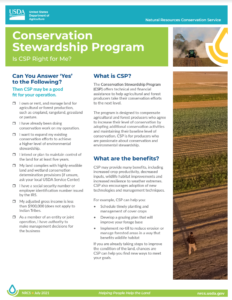
5 Fact Sheets on Ranching Assistance Programs
Discussion Questions:
- Are you familiar with any of the USDA programs mentioned? Were any mentioned that you think can be of use within your community?
- What is ranching like in your community? What are the challenges/rewards?
- How do local tribal administrations influence the success of ranching within your area?
Week 3 with Nikki Cooley
Educational Resources:
Discussion Questions:
- How do you talk about climate change adaptation planning with your students? What topics do you cover?
- How might you get your students involved in climate change adaptation planning?
- Place-based: How can caring for the soil in your community be part of adaptation planning?
Week 4 with Susan Sekaquaptewa
Educational Resources:
Shared Resources:
Dig In (Standards-Based Nutrition Education From the Ground Up)
The Growing Classroom: Garden-Based Science and Nutrition Activity Guide
Junior Master Gardener Teacher and Leader Guide
Ag In the Classroom
Week 5 with Yuko Wenzel
Educational Resources:
Discussion Questions:
- How do you motivate students to participate in place-based education, especially outside the classroom?
- In reference to the banana and yeast experiment, what in your area breaks down/decomposes?
- Do you cover geology in your classes? What do your students know about the local geology in general, not just in relation to soil?
- Do you talk about indicator species with your students? Plants? Animals? Do your students know the relationship between indicator species and resource availability (e.g., water)?
- What challenges have you encountered in making curriculum place-based?
Frequently Asked Questions
- Who can sign up?
- Middle and high school educators serving Native students in the science, technology, engineering, or math subject areas. We will incorporate the local and traditional knowledge that our speakers and educators bring from across the continent, so educators from all geographic areas are welcome.
If I sign up, what is the commitment?
- When you register, you commit to participating in a five-week professional development community, which involves honing a skill for teaching STEM, testing out a new experience, and engaging in dialog in our virtual community of educators. You will take part in one live Zoom meeting per week (1 hour) and reading/integrating material from one educational resource per week (1 hour), for a total of two hours per week.
How do I earn funds for materials and supplies for my classroom?
- By completing each of the activities in the module, you earn funds for materials and supplies in your classroom.
What will I learn?
- Teaching Native Waters is a community of educators that is working to make the science from the Native Waters on Arid Lands program available for classrooms. Educators will engage in skills to support teaching science and natural resources in the classroom related to agriculture, climate, water, and STEM careers.
What else will I receive?
- We will be sharing tools to help you access the program (like technology and data), which will be determined by participants’ needs upon registration.
- Every participant can participate in up to 0 professional development hours. We will provide a certificate upon completion of the module with the number of hours each educator earned.
Can I sign up with other educators at my school?
- YES! In fact, we highly encourage it.
I’m a school administrator or member of the support staff. Can I sign up?
- Yes please!
What will I need to participate?
- You will need an internet connection and a computer with microphone (for Zoom meetings).
What are the expectations?
- Plan to dedicate two hours per week. This will be a combination of live Zoom meetings, readings, and reflection.
How do I sign up?
- Click the registration button below to join!
Any questions?
This event is organized by Native Waters on Arid Lands educators and scientists from the Desert Research Institute and Crow Canyon Archaeological Center.
If you have questions about this event, please contact event organizer Meghan Collins, meghan.collins@dri.edu.

